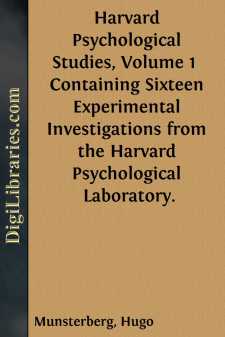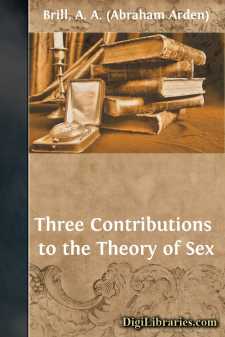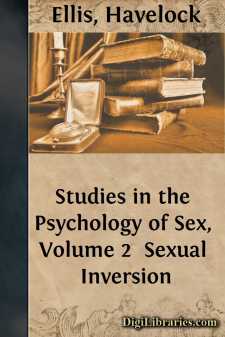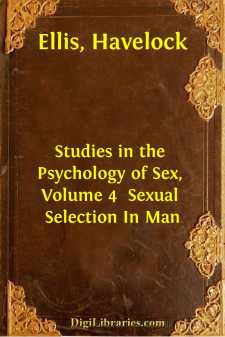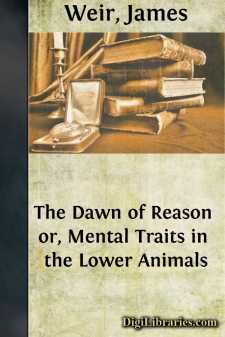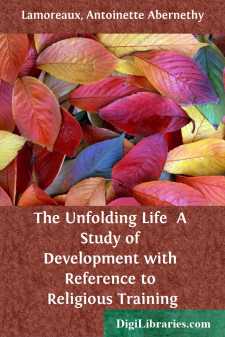Psychology
Psychology Books
Sort by:
by:
Hugo Munsterberg
I. THE PROBLEM OF ANÆSTHESIA DURING EYE-MOVEMENT. A first suggestion of the possible presence of anæsthesia during eye-movement is given by a very simple observation. All near objects seen from a fairly rapidly moving car appear fused. No further suggestion of their various contour is distinguishable than blurred streaks of color arranged parallel, in a hazy stream which flows rapidly past toward the...
more...
I The fact of sexual need in man and animal is expressed in biology by the assumption of a "sexual impulse." This impulse is made analogous to the impulse of taking nourishment, and to hunger. The sexual expression corresponding to hunger not being found colloquilly, science uses the expression "libido." Popular conception makes definite assumptions concerning the nature and qualities...
more...
FASTING GIRLS. I. ABSTINENCE IN THE MIDDLE AGES. Among the many remarkable manifestations by which hysteria exhibits itself, for the astonishment of the credulous and uneducated portion of the public, and—alas, that it should have to be said,—for the delectation of an occasional weak-minded and ignorant physician, the assumption of the ability to live without food may be assigned a prominent place....
more...
by:
Havelock Ellis
SEXUAL INVERSION. CHAPTER I.—INTRODUCTION. Homosexuality Among Animals—Among the Lower Human Races—The Albanians—The Greeks—The Eskimos—The Tribes of the Northwest United States—Homosexuality Among Soldiers in Europe—Indifference Frequently Manifested by European Lower Classes—Sexual Inversion at Rome—Homosexuality in Prisons—Among Men of Exceptional Intellect and Moral...
more...
by:
Havelock Ellis
SEXUAL SELECTION IN MAN. The External Sensory Stimuli Affecting Selection in Man—The Four Senses Involved. Tumescence—the process by which the organism is brought into the physical and psychic state necessary to insure conjugation and detumescence—to some extent comes about through the spontaneous action of internal forces. To that extent it is analogous to the physical and psychic changes which...
more...
by:
William James
RELIGION AND NEUROLOGY It is with no small amount of trepidation that I take my place behind this desk, and face this learned audience. To us Americans, the experience of receiving instruction from the living voice, as well as from the books, of European scholars, is very familiar. At my own University of Harvard, not a winter passes without its harvest, large or small, of lectures from Scottish,...
more...
by:
James Weir
The Senses in the Lower Animals The sense of touch—The senses of taste and smell—Actinophryans having taste—The sense of sight—Modification of sight organs by surroundings—Sight in Actinophryans—Blind fish sensitive to light—Blind spiders—Blind man—Primitive eyes in Cymothoe—In the jelly-fish, sea-urchin, Alciope, Myrianida—The sight organs of the snail—Power of vision in the...
more...
by:
Jacobo Schifter
What type of sexual relations are allowed in Latin American prisons? This book goes into the life of male prisoners and discovers the different type of relationships allowed and not allowed in the system. The book delves into the lives of men who are not homosexual but end up having sex and love affairs. How do they do it?
A DOMINIE IN DOUBT I. "Just give me your candid opinion of A Dominie's Log; I'd like to hear it." Macdonald looked up from digging into the bowl of his pipe with a dilapidated penknife. He is now head-master of Tarbonny Public School, a school I know well, for I taught in it for two years as an ex-pupil teacher. Six days ago he wrote asking me to come and spend a holiday with him, so...
more...
INTRODUCTION Having read with much care the proof sheets of this book, I am prepared to say three things about it, and it gives me pleasure to say them here. THE BOOK IS WELL NAMED. "THE UNFOLDING LIFE." Turn which way we will, we see life unfolding all about us, and yet how faintly are its mysteries understood! And is it not the one thing above all others, which teachers, mothers, fathers and...
more...


